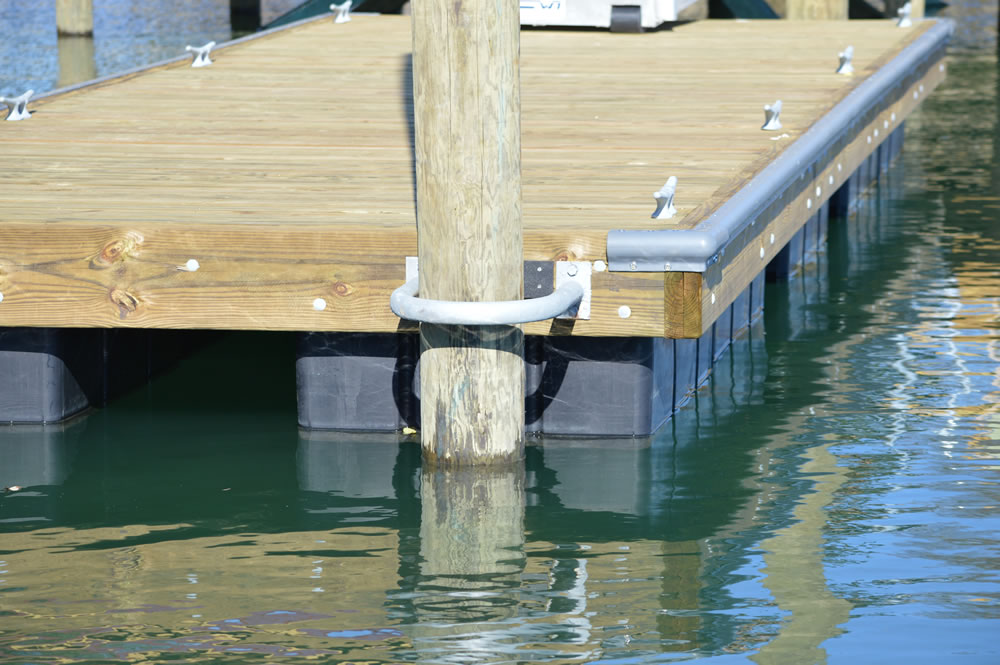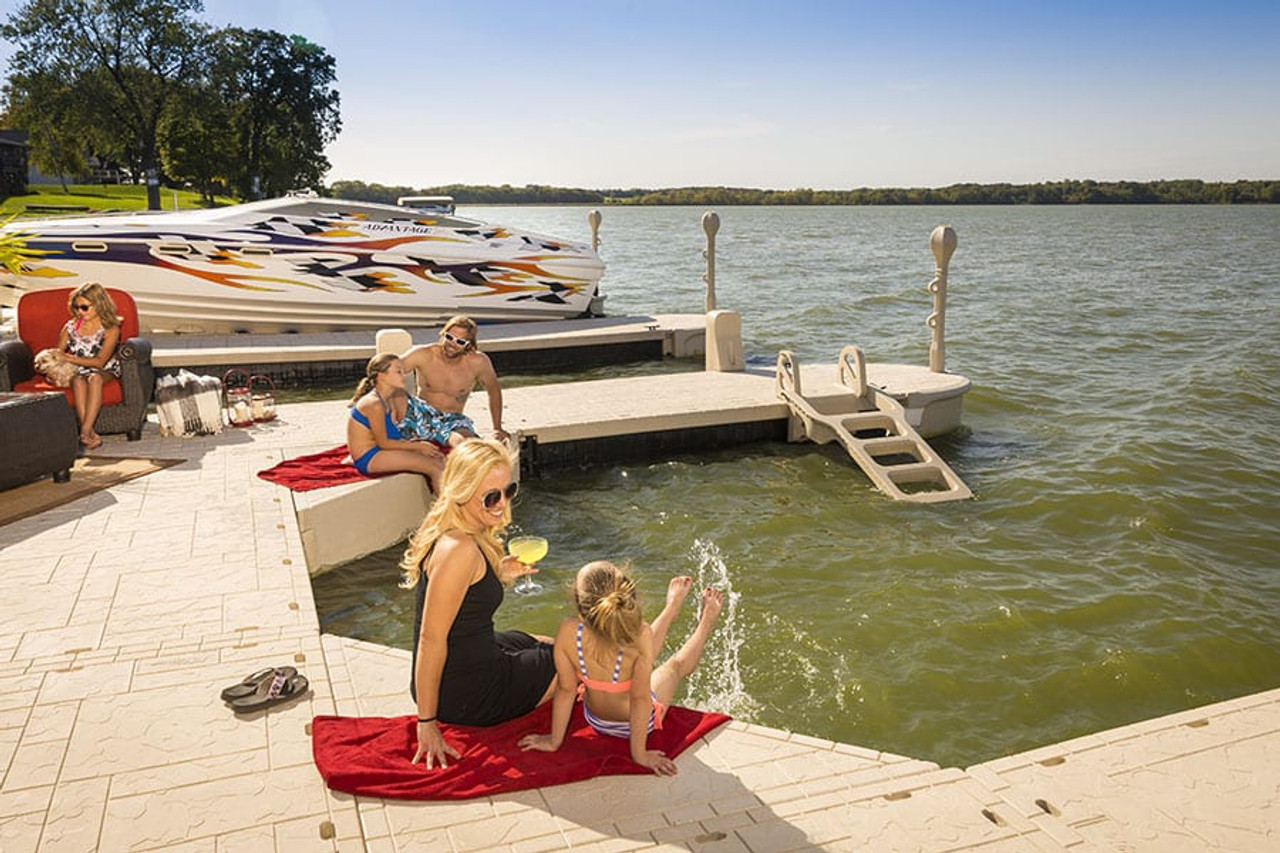How to Select the Right Floating Dock Builder for Your Customized Dock Requirements
How to Select the Right Floating Dock Builder for Your Customized Dock Requirements
Blog Article
The Ultimate Overview to Selecting the most effective Floating Docks
Selecting the suitable floating dock requires a detailed understanding of numerous components that affect both performance and longevity. Elements such as dock types, materials, and necessary attributes significantly impact your decision-making process.
Comprehending Floating Dock Types
When choosing a floating dock, it is vital to recognize the numerous kinds readily available, as each offers distinctive objectives and applications. Floating docks mostly come under 3 classifications: modular, stationary, and pontoon docks.
Modular docks are made up of specific areas that can be conveniently set up or reconfigured, making them excellent for transforming water levels and diverse uses, such as industrial operations or entertainment activities. Their versatility enables customization based upon details requirements.

Pontoon docks are identified by their buoyant framework, frequently made up of numerous pontoons that provide security and assistance. They are especially fit for larger vessels and are generally used in marinas or for waterside properties. Comprehending these kinds aids in choosing one of the most appropriate floating dock to satisfy details demands, making sure optimum functionality and safety.
Secret Products for Sturdiness
Choosing the ideal materials for floating docks substantially influences their durability and longevity. The most typical materials include timber, plastic, steel, and composite products, each offering distinctive advantages and limitations.
Wood, typically favored for its visual charm, calls for normal upkeep to withstand moisture and decay. Pressure-treated lumber can boost resistance to rot, but it may still be susceptible to insects and weathering.

Plastic docks, made of high-density polyethylene (HDPE), are immune to rust, UV radiation, and impact, making them a preferred option for coastal settings. Their lightweight nature additionally helps with simple installment and relocation.
Metal docks, generally created from light weight aluminum or galvanized steel, offer phenomenal stamina and longevity. They are immune to corrosion, specifically when treated, yet may call for extra insulation to stop warm buildup in hot environments.
Composite materials, integrating wood fibers and plastics, provide the advantages of both wood and plastic, withstanding dampness and fading while needing very little upkeep. - floating dock services
Eventually, the selection of materials ought to straighten with environmental conditions, planned use, and maintenance preferences to make certain the floating dock stays useful and cosmetically pleasing in time.
Crucial Features to Think About
While the selection of products is essential, thinking about crucial features for floating docks is similarly crucial to make certain optimal performance and individual contentment. One key attribute to evaluate is the dock's buoyancy capability, which establishes how much weight it can support without submerging. floating dock company. This is essential for suiting boats, individual watercraft, and even recreational tasks
Additionally, transportability is a substantial consideration. Depending on your needs, you may want a dock that is easy to dismantle and transfer, specifically if you intend to transfer it seasonally. Security is one more vital function; a well-designed floating dock should decrease activity triggered by wind and water currents, supplying a safe platform for users.
Safety features, such as non-slip surface areas and rounded sides, are likewise crucial to avoid accidents, specifically in damp conditions. Additionally, think about the availability of devices, such as ladders, cleats, and bumpers, which can boost the performance of your dock.
Installation and Upkeep Tips
Establishing up and maintaining a floating dock requires careful planning and attention to detail to ensure its durability and optimal efficiency. Begin by picking a suitable area that minimizes direct exposure to strong currents and waves, which can create wear and tear. Ensure that the water depth suffices for the dock's height and that it is secured firmly to stop activity.
During setup, comply with the supplier's guidelines closely, as this link inappropriate assembly can compromise stability. Use premium products resistant to rust, such as light weight aluminum or dealt with wood, to boost sturdiness. Frequently check all parts, including drifts, connectors, and anchoring systems, for indicators of damages or wear.
Maintenance is vital for prolonging the life of your dock. Clean the surface areas occasionally to stop algae accumulation and check for any loose fittings that might call for tightening. If your dock makes use of flotation gadgets, ensure they continue to be free and undamaged from leaks. In addition, think about applying protective finishings to wood components to reduce weathering effects. By adhering to these installment and maintenance ideas, you can delight in a reliable and functional floating dock for years to come.
Budgeting for Your Dock
Budgeting for your dock is an important step that can considerably affect your overall contentment and financial investment in a beachfront residential or commercial property. Establishing a clear budget helps you navigate the numerous alternatives offered and guarantees you make educated decisions that line up with your monetary abilities.
Begin by determining the dimension and layout of the dock you require, as these aspects will greatly affect the expense. Floating docks can vary considerably in cost, depending on products, buoyancy, and features like devices and ramps. Research study various producers and distributors to compare costs and understand the marketplace value.
In enhancement to first prices, take into consideration recurring expenses such as maintenance, insurance coverage, and possible repair work. Allot funds for these repeating prices to avoid surprises down the line. It's likewise sensible to budget plan for any type of essential authorizations or examinations, which may be needed by regional laws.
Lastly, bear in mind the potential roi. A tactical dock can improve your residential or commercial property's value and charm, giving a positive monetary effect in the long term. By budgeting properly, you can make sure that your dock meets your demands without compromising your monetary stability.
Verdict
In conclusion, selecting the excellent floating dock necessitates a complete analysis of various elements, including dock kinds, materials, necessary attributes, and installation procedures. Careful consideration of monetary restrictions will certainly better make sure a sound investment.

While the selection of products is crucial, taking into consideration essential features for floating docks is similarly crucial to make sure optimum efficiency and user complete satisfaction.Setting up and preserving a floating dock needs cautious preparation and read this article interest to information to guarantee its long life and optimum efficiency. Floating docks can differ considerably in price, depending on materials, buoyancy, and attributes like accessories and ramps.In conclusion, selecting the perfect floating dock necessitates a thorough evaluation of various factors, including dock types, products, crucial attributes, and installment procedures.
Report this page